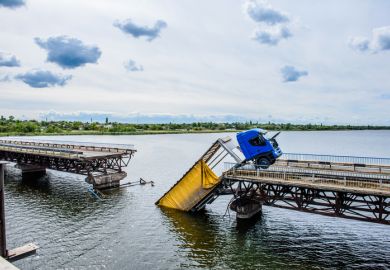Plans to require UK universities to provide “mandatory” training in research ethics have been dropped in response to concerns that the plan was too prescriptive and bureaucratic.
A revised Concordat to Support Research Integrity is due to be published next month by Universities UK, updating a 2012 document that identified five commitments that all those involved in research should be required to make.
The revision follows criticism last year by MPs on the Science and Technology Committee, who found that one in four UK universities had not published an annual summary of research misconduct investigations, as demanded by the 2012 concordat – with which compliance is, in theory, a prerequisite for receiving public grants and funding.
Under new proposals published in July 2018 to improve awareness of research ethics, universities would have been asked to provide a “research training environment [with] a minimum…mandatory training on research ethics and research integrity” as part of a commitment to “embed a culture of research integrity”.
However, speaking at a Westminster Higher Education Forum conference on research integrity in London on 9 September, Leonie Shanks, policy researcher at Universities UK, said that the word “mandatory” had been deleted from the final version of the concordat in response to comments received during a consultation.
While signatories to the new concordat – which include Universities UK, research funding bodies and government agencies – wanted to increase awareness of research ethics, many felt that the word “mandatory” implied that a certain amount of training would need to be provided to all research staff on a regular basis, which “did not reflect institutional reality”, said Dr Shanks.
Instead, “we will expect [institutions] to report their training as part of their annual statements”, she said.
Tanita Casci, head of research policy at the University of Glasgow, said that she welcomed the “important change”.
“It would have been difficult to report back on this as it was unclear on what training was mandatory,” Dr Casci told Times Higher Education. “Would it have meant people sitting in a room talking about these things, or doing online training, even if we know this isn’t the best way to explore these issues?”
Mandatory training may have also suggested that all research-active staff would need training, although it was unclear how often this would need to take place, Dr Casci added.
“Even if you have 100 per cent compliance, it will not be enough as these issues move rapidly,” said Dr Casci, suggesting continuous training might have been required to meet the concordat’s requirement.
While institutions may welcome the less prescriptive approach, the looser requirement on training is unlikely to impress MPs who, the forum heard, had been frustrated by the lack of detail in the 2012 concordat.
Stephen Metcalfe, a member of the Science and Technology Committee, told the forum that the “woolly nature” of the recommendations in the 2012 concordat “meant compliance was hard to nail down”.
“We were told institutions were in charge of policing themselves,” he continued, adding that “it was not a great advert for self-regulation.”
However, he said that he had been “impressed with the actions of UUK” which had presented a “clear roadmap to 100 per cent compliance”.
Mr Metcalfe also welcomed the decision to create a watchdog that will examine whether universities have carried out research misconduct investigations properly, similar to the model operated in Australia and Canada.
Register to continue
Why register?
- Registration is free and only takes a moment
- Once registered, you can read 3 articles a month
- Sign up for our newsletter
Subscribe
Or subscribe for unlimited access to:
- Unlimited access to news, views, insights & reviews
- Digital editions
- Digital access to THE’s university and college rankings analysis
Already registered or a current subscriber?








